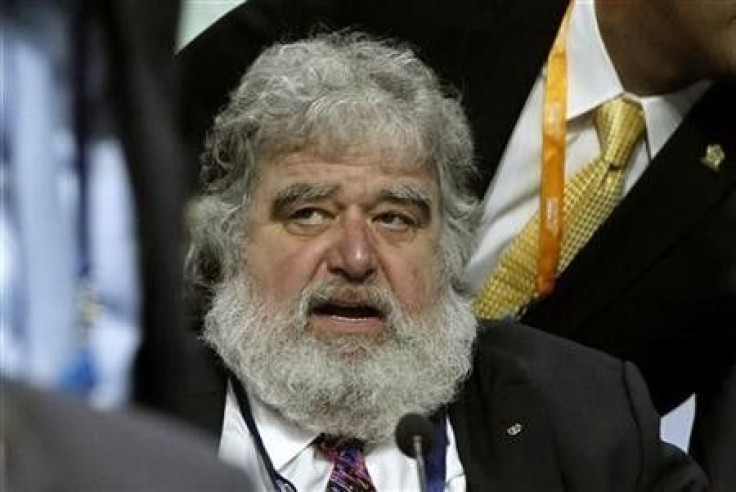CONCACAF's Blazer to Stand Down at End of Year

CONCACAF general secretary Chuck Blazer, a whistle-blower in the recent corruption scandal in the Caribbean that engulfed world soccer's governing body FIFA in controversy, has decided to leave his post at the end of the year.
Blazer, who has had his own finances probed by the FBI, said in a statement issued by the regional confederation on Thursday that he wanted to pursue other career opportunities in the burgeoning industry of international football.
The 66-year-old added, however, that he will retain his seat on FIFA's decision-making Executive Committee, which he has held since 1997.
The American, a close ally of FIFA president Sepp Blatter and one of world soccer's power brokers, had been at the helm of the regional body representing North and Central America and the Caribbean for 21 years.
My passion for soccer is undiminished and it is time for me to explore new challenges within this wonderful sport, Blazer said.
Running a governing body has been an incredibly fulfilling job, but there are so many other areas of the sport where, as a senior executive, I will make a great impact.
Blazer had worked closely with former CONCACAF president, Trinidadian Jack Warner, throughout his time at the confederation but earlier this year he gave evidence to FIFA's Ethics Committee that led to Warner's resignation.
The American provided documentation that led to a lifetime ban for Qatar's Asian Football Confederation chief Mohammed Bin Hammam, who had been challenging Blatter for the FIFA presidency.
Bin Hammam withdrew from the race on May 29 after being accused of distributing money to Caribbean soccer officials to secure their votes at a meeting organized by Warner and the Caribbean Football Union (CFU).
Bin Hammam and Warner have always denied any wrongdoing.
BITTER SPLIT
The incident led to a bitter split in the once Warner-dominated CFU.
The Caribbean has an in-built majority in the CONCACAF congress and Blazer would have faced a difficult, albeit not impossible, task to rebuild a coalition of support in the region.
As well as facing dogged legal resistance from banned Barbadian official Lisle Austin, who believes he was wrongly forced out of his role as interim president of CONCACAF, Blazer has also come under the scrutiny of U.S. authorities.
According to a U.S. law enforcement officer, the FBI is examining documents charting more than $500,000 in payments made to Blazer.
In an email to Reuters in August, Blazer did not deny receiving three offshore payments but insisted that all of my transactions have been conducted legally.
The timeline for the FBI investigation, which was prompted by reports from British journalist Andrew Jennings, is not known.
Blazer's reign at CONCACAF has seen the organization hugely expand its range of competitions and revenue sources with the bi-annual Gold Cup increasingly well attended and drawing large audiences on Spanish language television in North America.
Blazer has also overseen the transformation of the CONCACAF Champions Cup into a European-style Champions League and the American's organizational skills have clearly been profitable for the body, particularly in the area of television rights.
Chuck's contributions to the sport over the last 30 years are unparalleled. All of us in CONCACAF owe him a great debt of gratitude for his sustained efforts in helping to take the sport to where it is today, said U.S. Soccer President Sunil Gulati.
There is no doubt that he will continue to make an impact in whatever role he chooses.
© Copyright Thomson Reuters 2024. All rights reserved.











